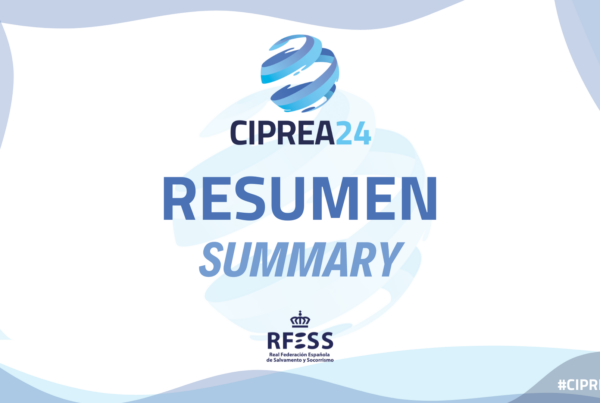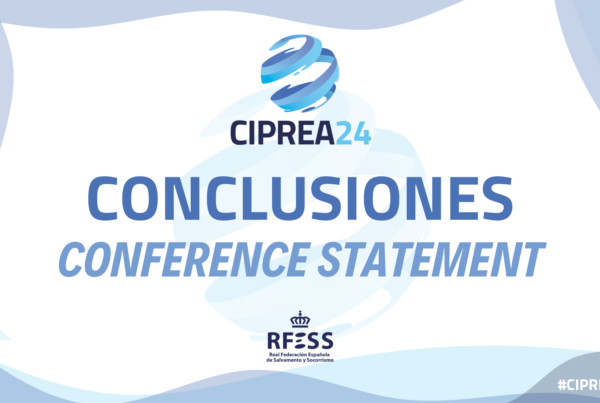
Estudiantes de ciclos de Emergencias atienden a la intervención de Jonathon Passmore, de la Oficina Regional de la Organización Mundial de la Salud para Europa, durante su ponencia titulada. Autor: Pablo Rodríguez-RFESS
The #CIPREA2024 concludes that the lack of public collaboration hinders the reduction of unintentional drowning deaths
The Royal Spanish Lifesaving Federation maintains the demand to regulate the lifeguard profession and to create a State Aquatic Safety Strategy
The fourth edition of the International Congress on Drowning Prevention #CIPREA2024 has shown that the lack of collaboration between public administrations and private entities is one of the biggest obstacles to reducing the high number of deaths due to unintentional drowning worldwide.
For this reason, this meeting, the most important at European and Latin American level and the second most important in the world, has highlighted in its conclusions, which are already available on the websites rfess.es and ciprea.es, the importance of establishing a leadership that coordinates national and international efforts in the fight against drowning.
The Royal Spanish Lifesaving Federation, organiser of the event, continues to demand the creation of a state regulation governing the profession of Lifesaving and Rescue in terms of work and training, with the aim of dignifying their work and ensuring safe conditions for their practice.
Likewise, the conclusions of #CIPREA2024, held from 18 to 20 October at the Palacio de Congresos de Córdoba, call on Spain to comply with Resolution 75/273 of the United Nations General Assembly, which urges States to establish a National Drowning Prevention Plan through the implementation of a State Aquatic Safety Strategy.
Among the conclusions of #CIPREA2024 is the need to create a global partnership between governmental and non-governmental institutions, essential for the future of drowning prevention and in the development of more efficient and sustainable strategies.

Un momento durante la mesa redonda sobre ‘La actuación en el rescate y atención a migrantes’, celebrada en el #CIPREA2024. Autor: Javier Sánchez-RFESS
The four keynote speeches and two discussion tables, together with more than sixty papers and posters, highlighted, among other aspects, the need for investment in prevention, stressing that the cost of repairing the damage caused by natural disasters is significantly higher than the necessary investment in preventive measures.
In this sense, given the foreseeable increase in adverse natural phenomena, investment is essential to avoid human and economic losses.
Another of the most debated points was the issue of drowning deaths of migrants, a global problem that requires a multilateral approach, underlining the responsibility of receiving countries to use resources in the development of countries of origin to address the underlying causes of these fatal incidents.
Finally, the importance of promoting and encouraging lifesaving as the only sport capable of saving lives was stressed.
The summary of the development of CIPREA2024 is also published on the websites rfess.es and ciprea.es.







